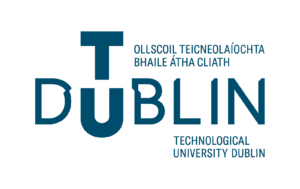Profile
Ted Burke
Curriculum Vitae
-
Education:
Primary: Booterstown National School, Dublin. Secondary: Newpark Comprehensive School, Dublin. University: Univeristy College Dublin
-
Qualifications:
BE, MEngSc, PhD
-
Work History:
National Rehabilitation Hospital, Dun Laoghaire. TU Dublin (formerly DIT)
-
Current Job:
Lecturer in School of Electrical and Electronic Engineering, TU Dublin
-
Employer:
Technological University Dublin

-
About Me: Teacher, engineer, researcher, runner.
-
Read more
I grew up in Dublin and I’ve spent most of my life here. I work at the Technological University of Dublin, city campus (formerly known as the Dublin Institute of Technology), which is a brilliant place to study and work. I love being in the city every day – we’re right in the thick of it here! My job mixes teaching and research and I enjoy them equally. Both are actually very social, which is important to me. I enjoy working on things on my own sometimes, but I really value being part of a team. Some of my best work gets done while chatting over tea. Outside of work, I’m a keen runner – mostly long distance. I run a lot of races, but I love to get out for a long chilled out run with my friends too.
-
My Work: Teaching programming, robotics and biomedical engineering.
-
Read more
I’m a lecturer in electrical engineering, but some of my teaching and most of my research is really what we call biomedical engineering. Electricity is used for all sorts of things inside the human body. For example, neurons (cells that transmit and process information) use electricity to do their job. Because so many of the things going on inside the body rely on electrical processes, we can find out all sorts of things by recording electrical signals from the skin. For example, by recording the electrical activity of the heart we can measure how fast it’s beating or detect if there’s something wrong with it. We can also record the electrical activity of the brain by measuring signals from a person’s scalp to find out what’s happening inside someone’s head.
Electrical engineers design the systems that record these tiny signals from the body, so that’s how I ended up working in this area. I now teach undergraduate engineers and scientists how these systems work and also how to analyse the signals they record. One of the things I’m most interested in is what we call human-machine interaction – literally how humans interact with computers and other devices. Electrical signals can provide a way for humans to control machines when other methods fail. For example, if a person can’t use a keyboard or touch screen because they’re paralysed, electrical signals from their body can allow them to communicate or to control a computer.
As well as biomedical engineering, I teach a lot of programming and robotics. Some of my PhD students are working on projects that combine all of those areas.
-
My Typical Day: Lecture, project lab, building robots, tea, 100 emails.
-
What I'd do with the money: Buy components to let lots of people build their own ultra low cost robot!
-
Read more
Together with some of my colleagues, I’m involved in a project called RoboSlam (roboslam.com). We run workshops for the public to let them experience what it’s like to do real engineering work. Our original workshop was a day long experience where complete beginners got to build a small autonomous robot out of real electronic components, and then program it to control its behaviour. At the end, everyone gets to take their robot home with them. Usually, we find a sponsor so that the workshop is completely free for the participants. To make that possible, we’ve designed our robot to be extremely low-cost (the parts are currently about €10).
We now also run other versions of the workshop where the participants build different things. One is a handheld game console. Another is a web arcade game. One of my favourite workshops is about biomedical engineering – we call it BioSlam. The participants build an electronic circuit to measure signals from the human body and then use them to create a communication system. Since this is the Health Zone, if I win the €500 then I might use it to buy parts for more BioSlam workshops so that more people can learn about recording signals from the body.
-
My Interview
-
How would you describe yourself in 3 words?
Happy, resourceful, sociable.
What's the best thing you've done in your career?
Our school has an amazing culture of teaching and learning. Being a part of that is the thing I'm proudest of.
What or who inspired you to follow your career?
As a child, playing with Lego and my ZX Spectrum home computer. In school, some great teachers including John O'Neill, my engineering teacher in Newpark School.
What was your favourite subject at school?
Engineering
What did you want to be after you left school?
I wasn't really sure.
Were you ever in trouble at school?
Only once in a while; nothing major. I was happy in school!
If you weren't doing this job, what would you choose instead?
Artist / designer
Who is your favourite singer or band?
Too many to pick one. Currently listening to Blood Orange!
What's your favourite food?
Potatoes
What is the most fun thing you've done?
I exhibited a digital art project called Fraktalismus at Dublin Maker 2017 (Ireland's biggest maker fair). That was amazing fun.
If you had 3 wishes for yourself what would they be? - be honest!
1.) I'd like to be a better musician. 2.) I'd like to be able to learn more things faster. 3.) For a couple of years, I've had an idea about stimulating and recording signals from the brain's visual cortex - I'd really love to get that working!!
Tell us a joke.
Red sky at night: shepherd's delight, Blue sky at night: day.
-
